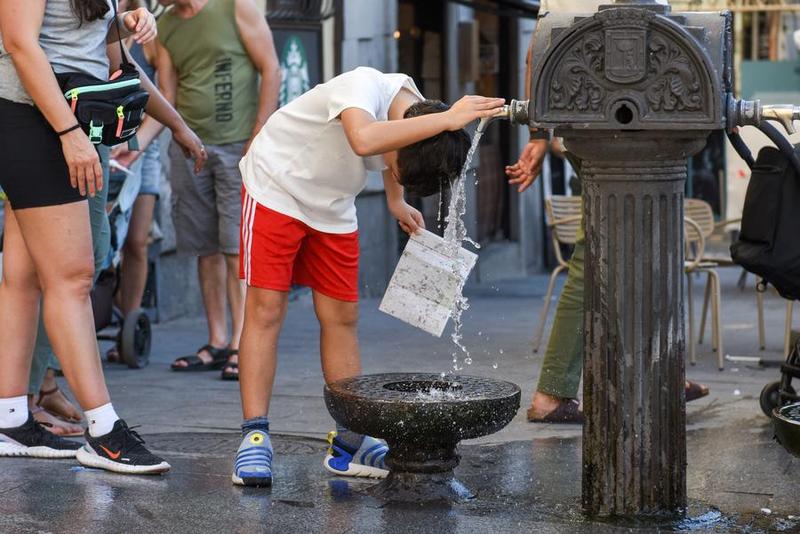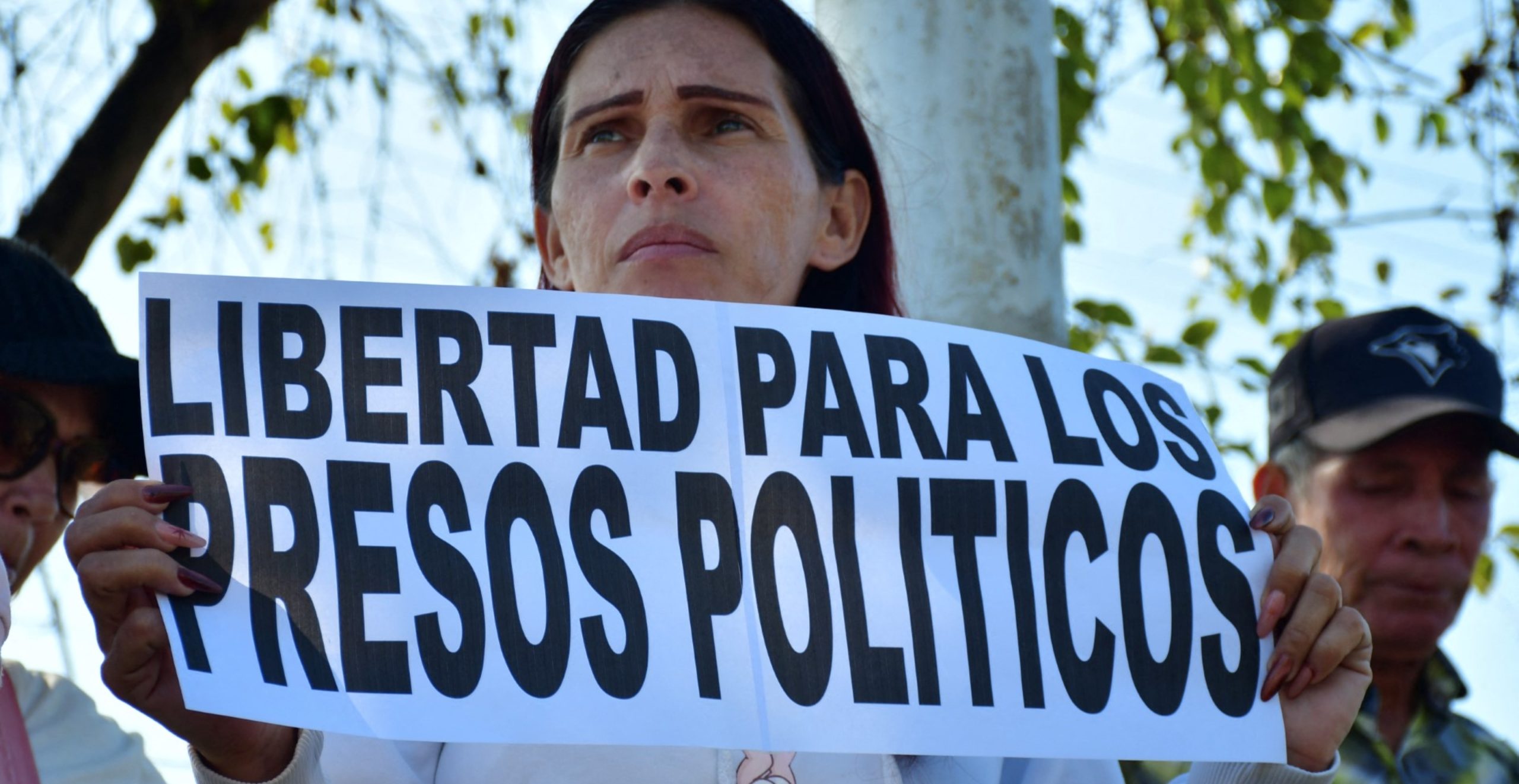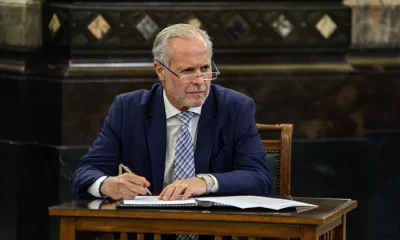International
Uruguayan government rejects warnings about water crisis

July 14 |
A group of experts from the United Nations (UN) on Thursday urged the government of Uruguay to prioritize the use of fresh water for human consumption in the context of the water crisis that the South American country is going through, which was not favorably received by the government of Luis Lacalle Pou.
In a letter, whose signatories include the Special Rapporteur on the Human Right to Drinking Water and Sanitation, Pedro Arrojo-Agudo and the president of the Working Group on Business and Human Rights, Damilola Olawuyi, warns that 60 percent of the population has been affected by the increase in water salinity.
The specialists, with several years of experience, stressed that “although the high salt indices are attributed to the failure of water infrastructure, aggravated by abnormally long periods of water stress, the underlying problem is the overexploitation of water, especially by some industries in the country”.
For these reasons, they said, “it is necessary to deepen measures to ensure that all people have access to the water necessary for life,” because these high levels of salinity, for example, “significantly affect vulnerable groups, such as children and adolescents, pregnant women and people suffering from chronic diseases.
The experts acknowledged the efforts made by the Uruguayan Executive, such as the exemption of bottled water from taxes; however, the government responded to the exhortation through a statement from the Ministry of Foreign Affairs in which it described the experts’ statements as “inaccuracies”.
For its part, the Uruguayan Foreign Ministry notified that the values of chlorine and sodium in the water “are not considered alarming, since the increase authorized in order to ensure the supply has been evaluated by the health and academic authorities, who have considered that the great majority of the population can continue consuming it”.
In the text, the diplomatic entity recalled that the Ministry of Social Development provided for its beneficiaries (supported by family allowances, old age assistance, passive people receiving minimum income) a monetary support to buy 60 liters of water per month, particularly pregnant women and children under 2 years of age.
The text also remarked that, as a way of preventing the water crisis and preserving the health of the population, the administration of Obras Sanitarias del Estado (OSE) and the Executive designed a strategy based on “maintaining the continuity of the public supply without making supply cuts”.
Likewise, “to maintain the sanitation service so that the more than 550,000 homes in the Metropolitan Region can evacuate domestic wastewater, and to keep the distribution networks continuously operational to fight and protect against fires and urban disasters”, it explained.
The text in question emphasizes that “the Government never recommended reducing human consumption of water, but its reduction in non-essential activities in order to ensure better water quality for a longer period of time”. In this sense, it adds that “water is still drinkable”.
International
Spain’s irregular migrant population rises to 840,000, study finds

The number of migrants living in Spain without legal residency status continues to rise and has reached 840,000 people, with 91% originating from the Americas, particularly Colombia, Peru and Honduras, according to a report by the Spanish think tank Funcas (Foundation of the Savings Banks).
An estimated 17.2% of the non-EU foreign population living in Spain is in an irregular administrative situation. The estimate is based on the gap between the number of foreign residents effectively living in Spain, according to the National Statistics Institute (INE), and those who hold a residence permit, benefit from international protection, or are in the process of obtaining it.
The data, as of January 1, 2025, point to a notable and sustained increase in irregular migration since 2017, when the estimated figure stood at around 107,000 people, representing 4.2% of the non-EU population residing in Spain.
By origin, migrants from the American continent stand out, totaling around 760,000 people, or 91% of all irregular migrants. Colombians account for nearly 290,000, followed by Peruvians with almost 110,000, and Hondurans with about 90,000. Migrants from Africa (50,000), Asia (15,000) and Europe (14,000) trail far behind.
The figures predate Spain’s latest immigration regulation reform, which came into force in May 2025 and introduces measures to ease access to legal status through residency ties. According to Funcas, the reform would, in principle, tend to reduce the number of migrants in an irregular situation.
International
Historic snowstorm paralyzes Toronto after 60 centimeters of snow

Toronto, Canada’s largest city and the fourth most populous in North America, was largely paralyzed on Monday after a historic snowstorm dumped up to 60 centimeters of snow and sent temperatures plunging to -15 degrees Celsius, authorities said.
Late Sunday, as the scale of the snowfall became clear, city officials declared a climate emergency, triggering extraordinary measures including parking bans on several major streets to facilitate snow removal operations.
Toronto’s public transit authority reported that while some buses remain immobilized, subway and streetcar services are operating with relative normality, though localized disruptions may occur.
A similar situation is affecting the city’s commuter rail network, which remains operational but is experiencing significant delays on its main routes due to the severe weather conditions.
International
Venezuela frees at least 80 political prisoners, NGO says

At least 80 political prisoners were released on Sunday across Venezuela, human rights group Foro Penal reported, as the broader process of detainee releases continues at a slow pace under the interim government.
Foro Penal’s director, Alfredo Romero, wrote on social media platform X that verified releases took place nationwide and that the figure could rise as more confirmations are completed.
Attorney Gonzalo Himiob, also from Foro Penal, said the excarcelations occurred during the early hours of the day and emphasized that the number is not yet final pending further verification.
The releases are part of a series of steps announced by Venezuela’s interim leader, Delcy Rodríguez, who took power after the capture of former President Nicolás Maduro in a U.S. military operation on Jan. 3, 2026. Rodríguez has pledged a significant number of liberations but has been criticized by opposition groups and rights organizations for the slow and nontransparent nature of the process.
So far, the Venezuelan government reports that 626 detainees have been freed since December, though independent counts by human rights groups suggest the number of actual political prisoner releases is lower and that many remain behind bars.
Families of those still detained have maintained vigils outside prisons, hopeful for further releases even as broader concerns about political imprisonment and due process persist.
-

 Central America5 days ago
Central America5 days agoMazatenango Carnival cancelled amid State of Siege in Guatemala
-

 International5 days ago
International5 days agoTrump to invite Venezuela’s interim president Delcy Rodríguez to Washington
-

 International5 days ago
International5 days agoMarkets rise as Trump halts Europe tariffs and floats Greenland agreement framework
-

 International5 days ago
International5 days agoVenezuela’s interim president predicts 37% increase in revenues for 2026
-

 International3 days ago
International3 days agoTrump-Era Defense Plan Prioritizes Border Security and Scales Back Global Commitments
-

 Internacionales4 days ago
Internacionales4 days agoMajor winter storm threatens “catastrophic” ice and snow across much of the U.S.
-

 Central America4 days ago
Central America4 days agoGuatemala’s president rules out negotiations with inmates after prison riots
-

 International5 days ago
International5 days agoFour minors killed in deadly clash between FARC dissidents in Colombia’s Amazon
-

 International5 days ago
International5 days agoJapan reopens Kashiwazaki-Kariwa Plant despite public concerns
-

 International3 days ago
International3 days agoBogotá and Quito Seek Dialogue After Tariffs and Power Cut Escalate Tensions
-

 International4 days ago
International4 days agoGuatemala considers sending high-risk gang members to military prisons
-

 International2 days ago
International2 days agoDelcy Rodríguez seeks political agreements after Maduro’s ouster
-

 International2 days ago
International2 days agoFederal immigration agents kill man in Minneapolis, sparking protests and outrage
-

 International4 days ago
International4 days agoRights group says over 5,000 killed in Iran protests, mostly civilians
-

 International16 hours ago
International16 hours agoHistoric snowstorm paralyzes Toronto after 60 centimeters of snow
-

 International16 hours ago
International16 hours agoSpain’s irregular migrant population rises to 840,000, study finds
-

 International17 hours ago
International17 hours agoRights group says nearly 6,000 killed in Iran protest crackdown
-

 Central America17 hours ago
Central America17 hours agoGuatemala seizes over a ton of cocaine hidden in flour at Pacific port
-

 International16 hours ago
International16 hours agoVenezuela frees at least 80 political prisoners, NGO says
-

 International16 hours ago
International16 hours agoEU launches new probe into X over AI-generated fake nude images
-

 International17 hours ago
International17 hours agoFrance debates ban on social media for children under 15
-

 International17 hours ago
International17 hours agoSevere winter storm grips U.S., leaves multiple dead as extreme cold persists
































